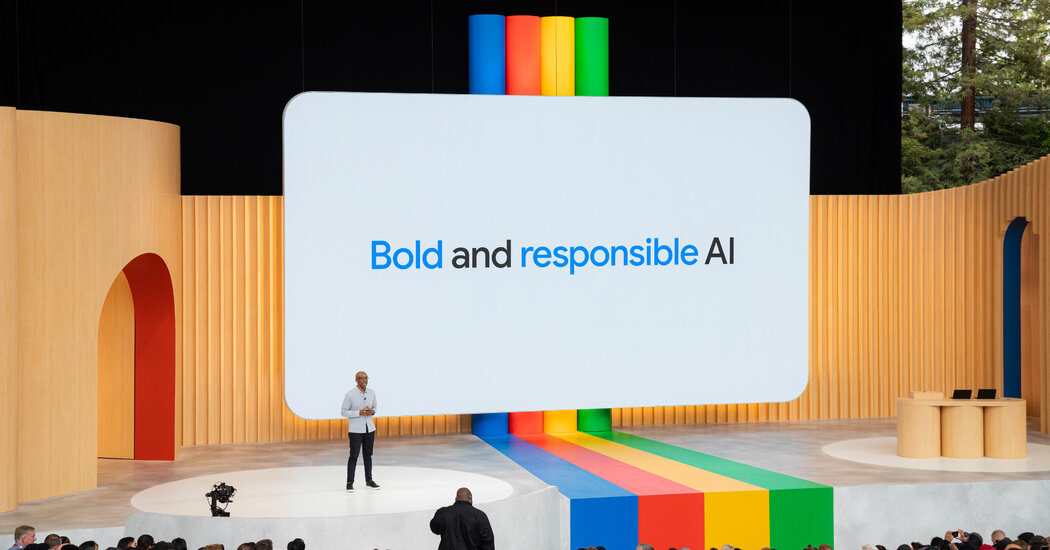
The tech company’s plan is similar to one announced two days earlier by Meta, another Silicon Valley giant.
Google, whose work in artificial intelligence helped make A.I.-generated content far easier to create and spread, now wants to ensure that such content is traceable as well.
The tech giant said on Thursday that it was joining an effort to develop credentials for digital content, a sort of “nutrition label” that identifies when and how a photograph, a video, an audio clip or another file was produced or altered — including with A.I. The company will collaborate with companies like Adobe, the BBC, Microsoft and Sony to fine-tune the technical standards.
The announcement follows a similar promise announced on Tuesday by Meta, which like Google has enabled the easy creation and distribution of artificially generated content. Meta said it would promote standardized labels that identified such material.
Google, which spent years pouring money into its artificial intelligence initiatives, said it would explore how to incorporate the digital certification into its own products and services, though it did not specify its timing or scope. Its Bard chatbot is connected to some of the company’s most popular consumer services, such as Gmail and Docs. On YouTube, which Google owns and which will be included in the digital credential effort, users can quickly find videos featuring realistic digital avatars pontificating on current events in voices powered by text-to-speech services.
Recognizing where online content originates and how it changes is a high priority for lawmakers and tech watchdogs in 2024, when billions of people will vote in major elections around the world. After years of disinformation and polarization, realistic images and audio produced by artificial intelligence and unreliable A.I. detection tools caused people to further doubt the authenticity of things they saw and heard on the internet.
Configuring digital files to include a verified record of their history could make the digital ecosystem more trustworthy, according to those who back a universal certification standard. Google is joining the steering committee for one such group, the Coalition for Content Provenance and Authenticity, or C2PA. The C2PA standards have been supported by news organizations such as The New York Times as well as by camera manufacturers, banks and advertising agencies.
Thank you for your patience while we verify access. If you are in Reader mode please exit and log into your Times account, or subscribe for all of The Times.
Thank you for your patience while we verify access.
Already a subscriber? Log in.
Want all of The Times? Subscribe.